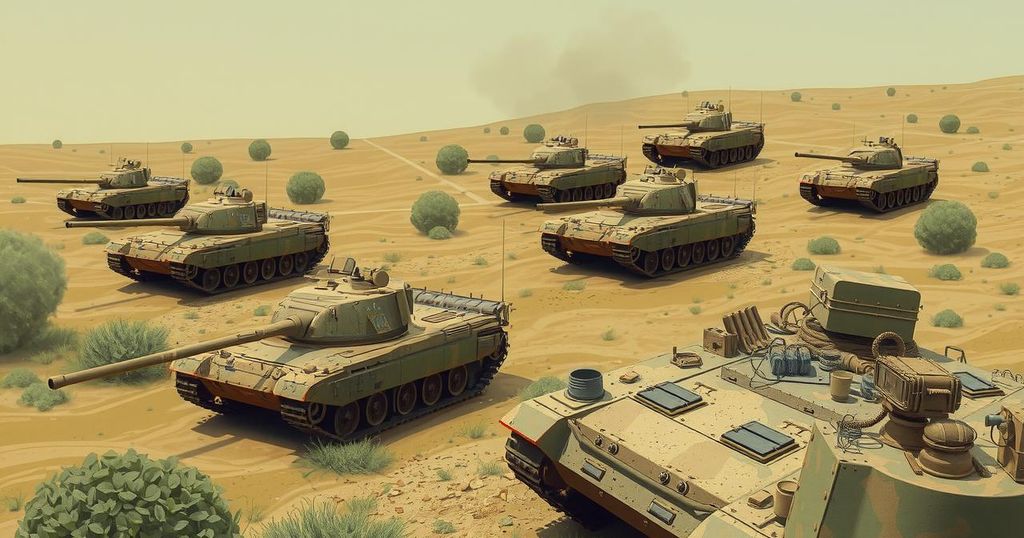World news
ASIA, DEFENCE, ENERGY INFRASTRUCTURE, EUROPE, EUROPE/ASIA, GENERAL INTELLIGENCE SERVICE, HUR, KOREA, NORTH, KYIV, MILITARY, MISSILE ATTACK, PYONGYANG, RUSSIA, RUSSIAN NATIONAL SECURITY COUNCIL, SERGEI SHOIGU, UKRAINE, UKRAINIAN AIR FORCE, UKRAINIAN MINISTRY OF DEFENSE, WAR
David O'Sullivan
0 Comments
Ukraine Reports North Korea’s Troop Deployment to Russia
- Ukraine’s intelligence suggests over 30,000 North Korean troops are being sent to Russia.
- North Korea has previously dispatched 11,000 troops to Russia last year.
- Concerns grow over possible participation in joint military drills in September.
- Russian funding may bolster North Korea’s military-industrial capabilities.
- Enhancements to North Korean missile technology indicate serious advancements.
North Korean Troops Expected to Join Russia and Belarus
In a recent development, Ukraine’s intelligence community has alerted that North Korea is anticipated to deploy over 30,000 additional troops to Russia in the coming months. This report indicates potential participation in joint military exercises alongside Russia and Belarus slated for September. As reported by The Times, the Ukrainian Ministry of Defense’s General Intelligence Service (HUR) has significantly assessed the capabilities enhancement of the North Korean military, particularly after the troop dispatch.
Growing Concerns Over Military Engagements
According to South Korean intelligence, North Korea had already dispatched around 11,000 troops to Russia back in October of last year, with another 3,000 troops following in the early months of this year. Additionally, Sergei Shoigu, who is the secretary of Russia’s National Security Council, recently visited Pyongyang and confirmed that North Korea is sending a total of 6,000 engineers and military construction personnel. The report details alarming statistics, indicating that 9,500 soldiers from four distinct brigades were involved in tactical engagements in the Kursk region, reporting casualties of around 4,000, dead or injured.
Military Exercise Raises Eyebrows
There are rising worries that a substantial number of these North Korean forces might be integrated into the upcoming Russia-Belarus joint military exercise, dubbed “Zapad 2025”. Previous iterations of this exercise had already raised alarms, especially when similar activities under the guise of military drills were perceived as preparation for an offensive against Ukraine’s capital, Kyiv, in 2022. Furthermore, these drills may herald renewed efforts to regain Kyiv. In addition, reports suggest an investment of Russian funding in bolstering North Korea’s military-industrial complex, predicting an arrival of an additional 1.5 million shells in Russia over the next three months. This accumulates on the already estimated 12 million shells sent earlier by North Korea.
Missile Developments Are Not to Be Underestimated
Moreover, the report highlights improvements in North Korea’s short-range ballistic missile, the KN-23, whose accuracy has benefitted from Russian technical assistance. A senior official from the Ukrainian Air Force commented on the missile’s evolution, stating that initial launches saw a miss of about 15 kilometers from the target, yet recent updates and improved guidance have greatly reduced this margin to mere hundreds of meters. This advancement pushes the KN-23 intriguingly close to its counterpart, the Iskander missile, raising deeper concerns among defense analysts. With this cooperation between North Korea and Russia, there are indications that North Korea’s military modernization opportunities are expanding, including enhanced nuclear capabilities and weapon production systems.
The ongoing military collaboration between North Korea and Russia poses serious implications for regional security, particularly concerning the potential deployment of troops and participation in military exercises. The evolving capabilities of North Korea’s military, especially in missile technology, could further escalate tensions in the region. Observers are warned that the dynamics of this partnership signify a rise in threats, not only to Ukraine but also to U.S. allies in Asia, notably South Korea and Japan.




Post Comment